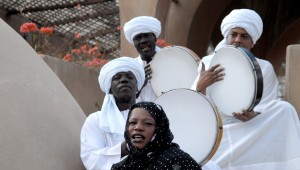Analysts ruled out that the money market would be affected by the high-yield dollar savings certificates offered by the National Bank of Egypt and Baque Misr to attract dollar liquidity.
Analysts whom Daily News Egypt spoke to said that there is undoubtedly competition between bank certificates and stocks as a hedge against inflation, but the nature of dollar investors in particular is different from stock investors.
Banque Misr issued two certificates: “Al-Qimma” with an annual return of 9%, which is paid in advance in pounds for the three years, 27% cumulatively, and “Elite” with a return of 7% annually, and the return is paid quarterly in dollars. Elite holders can borrow in Egyptian pounds, up to 50% of the certificate’s redemption value, up to a maximum of EGP 10m. The value of the certificate will be refunded in dollars. The National Bank of Egypt also offered the “Al-Ahly Plus” certificate for a period of three years, with a return of 7% annually, and it is also permissible to borrow with its guarantee up to 50% of the value of the certificate, with a maximum of EGP 10m, in addition to the “Al-Ahly Immediately” certificate for 3 years, which is not permissible to borrow with its guarantee. However, it gives an annual return of 9%, which is paid in advance in pounds.
Mohamed Fahmy, head of the risk sector at Misr Capital, the investment arm of Banque Misr, said that the new certificates provide new opportunities for those who have dollar savings.
Fahmy added to Daily News Egypt that issuing these certificates will support banks and help the state to facilitate import operations, but they have no direct impact on stock prices on the Egyptian Exchange, as trading is in pounds, explaining that it will affect the real estate sector, which naturally, is more connected to the dollar than the money market.
Hany Genena, chief investment strategy analyst at Thndr, said that stocks will remain an attractive investment vessel after individuals realize the real gap between core inflation and returns from certificates and deposits.
Genena added that the certificates primarily aim at preserving dollar deposits after a number of depositors withdrew dollars, explaining that the cost of maintaining those deposits will not be high by calculating the difference between the return and the lending rate on the certificate.
He explained that the shares of the listed banking sector will not be affected unless the rest of the banks are forced to offer similar certificates in the event that they witness the withdrawal of dollar deposits to go for these certificates, explaining that their impact on attracting new funds is limited.
Mohamed Abdel Hakim, head of the Research Unit at Ostoul, said that the government needs foreign currency and the certificates help it provide part of those needs, and that the impact on the money market is limited, especially as it is an attractive investment vessel, explaining that the present time the investor will not convert dollars into pounds to invest in stocks.
Mohamed Farouk, Chairperson of Global Invest, believes that competition exists and continues between savings and investment vessels and will continue to exist, but each tool has a different investor nature, and the nature of dollar investors differs greatly from stocks, but the competition between the Stock Exchange and bank certificates as vessels is still present and fierce. He explained that the new certificates provide a comparative advantage for the state, especially as it needs dollar liquidity.
Mohamed Gaballah, a board member Roaya Online Brokerage, told the Daily News Egypt that the dollar savings certificates will not have an impact on the stock exchange’s shares, as the stock exchange’s client is different from the bank’s client, and its sole objective is to withdraw dollars from the hands of individuals.




